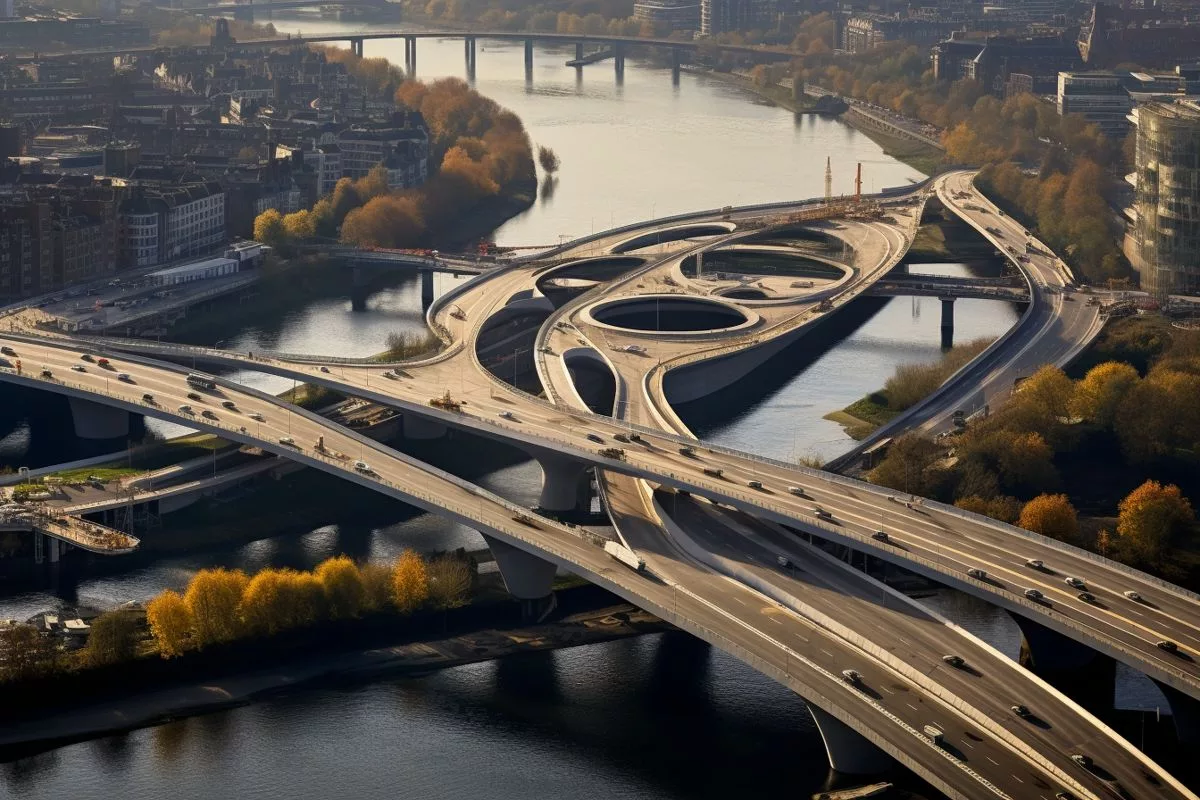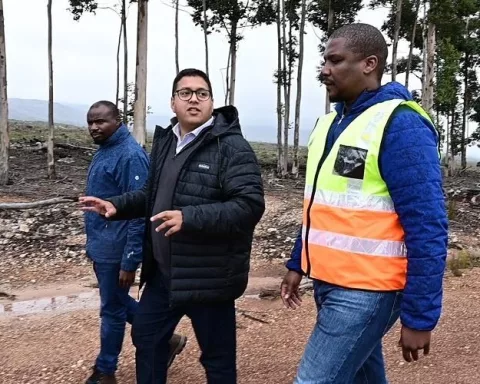The Refinery Exchange Initiative is a project in the Western Cape of South Africa that aims to improve traffic safety at the Refinery interchange. The project includes the construction of two new bridges, an expansion of an existing bridge, and the reconstruction of the carriageway. Despite minor delays due to weather events, the project has created jobs, supported local businesses, and is expected to be completed in the first quarter of 2024. It serves as an example of the province’s dedication to upgrading its road systems and revitalizing the local economy.
What is the Refinery Exchange Initiative in Western Cape?
The Refinery Interchange Project is a 30-month infrastructure development project in the Western Cape of South Africa. It aims to improve the safety of traffic operations at the Refinery interchange and has already created jobs and supported local businesses. The project includes the construction of two new bridges, expansion of an existing bridge, and reconstruction of the carriageway. Despite minor delays due to weather events, the project is expected to be completed in the first quarter of 2024.
Infrastructure Development and Community Impact
The Western Cape of South Africa is renowned not only for its breathtaking landscapes and dynamic culture but also for its thoughtfully designed development projects. The Refinery Interchange Project stands as a prime example of this, showcasing the province’s dedication to upgrading its road systems.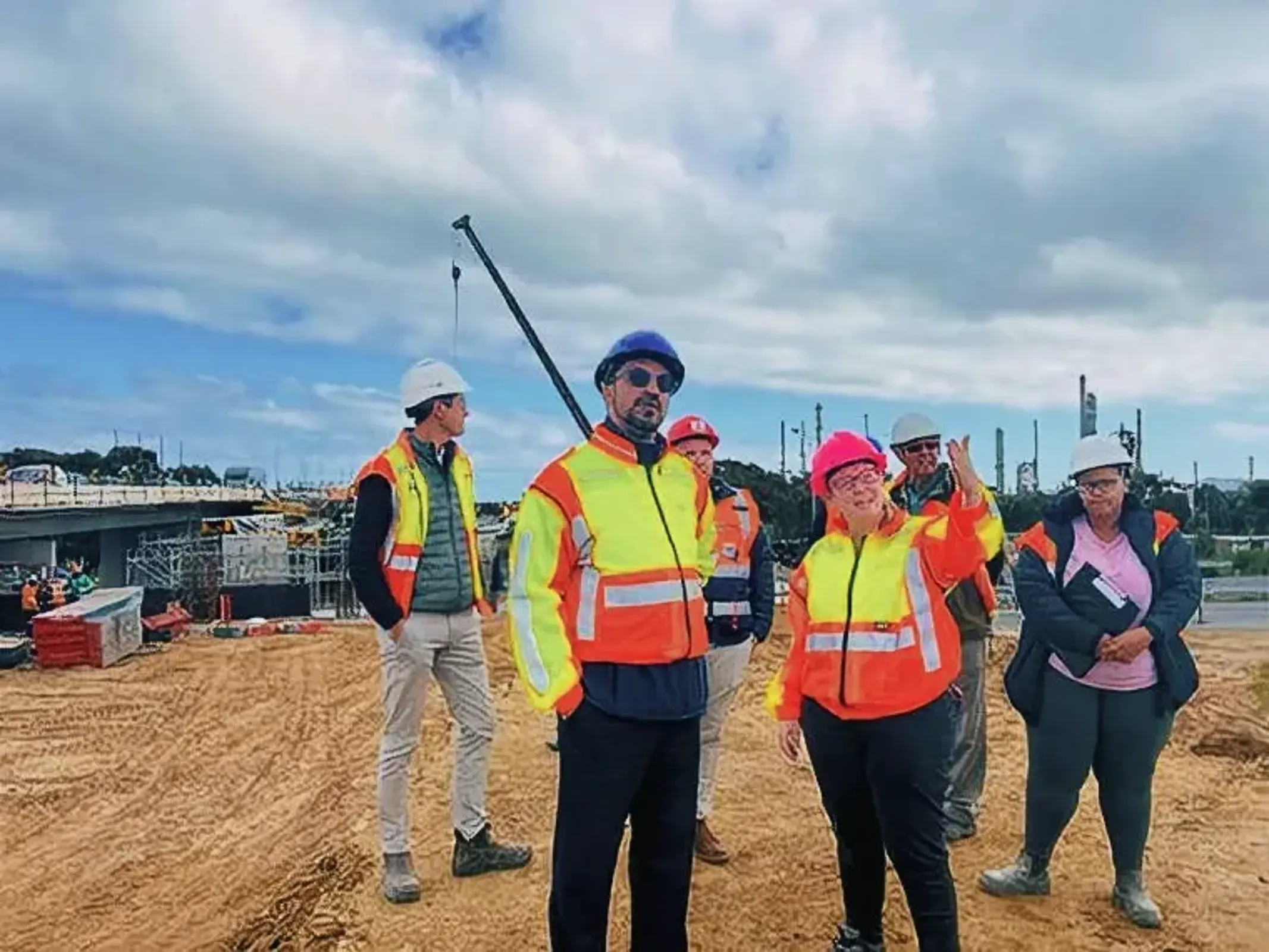 Photo: Western Cape Government
Photo: Western Cape Government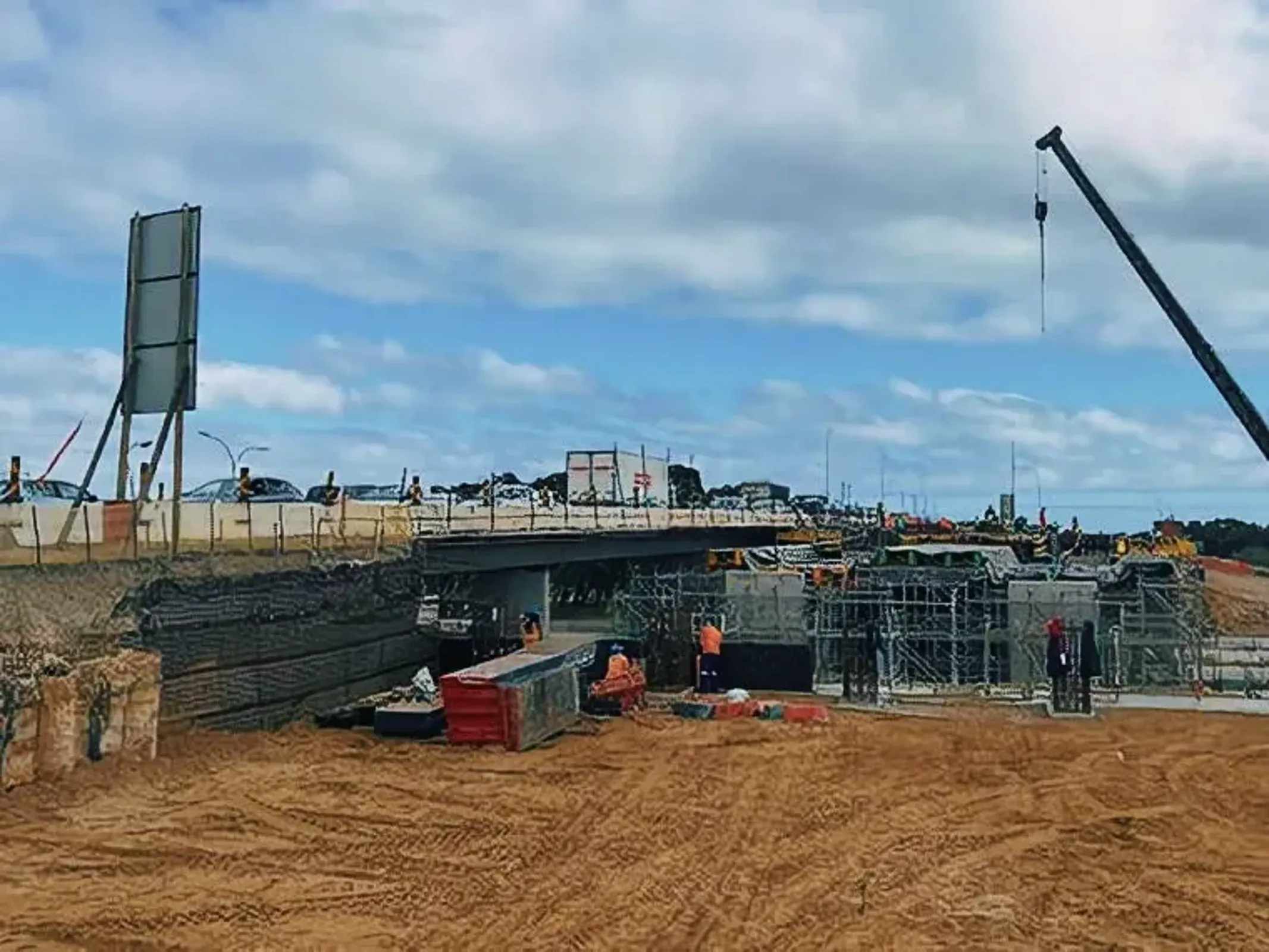 Photo: Western Cape Government
Photo: Western Cape Government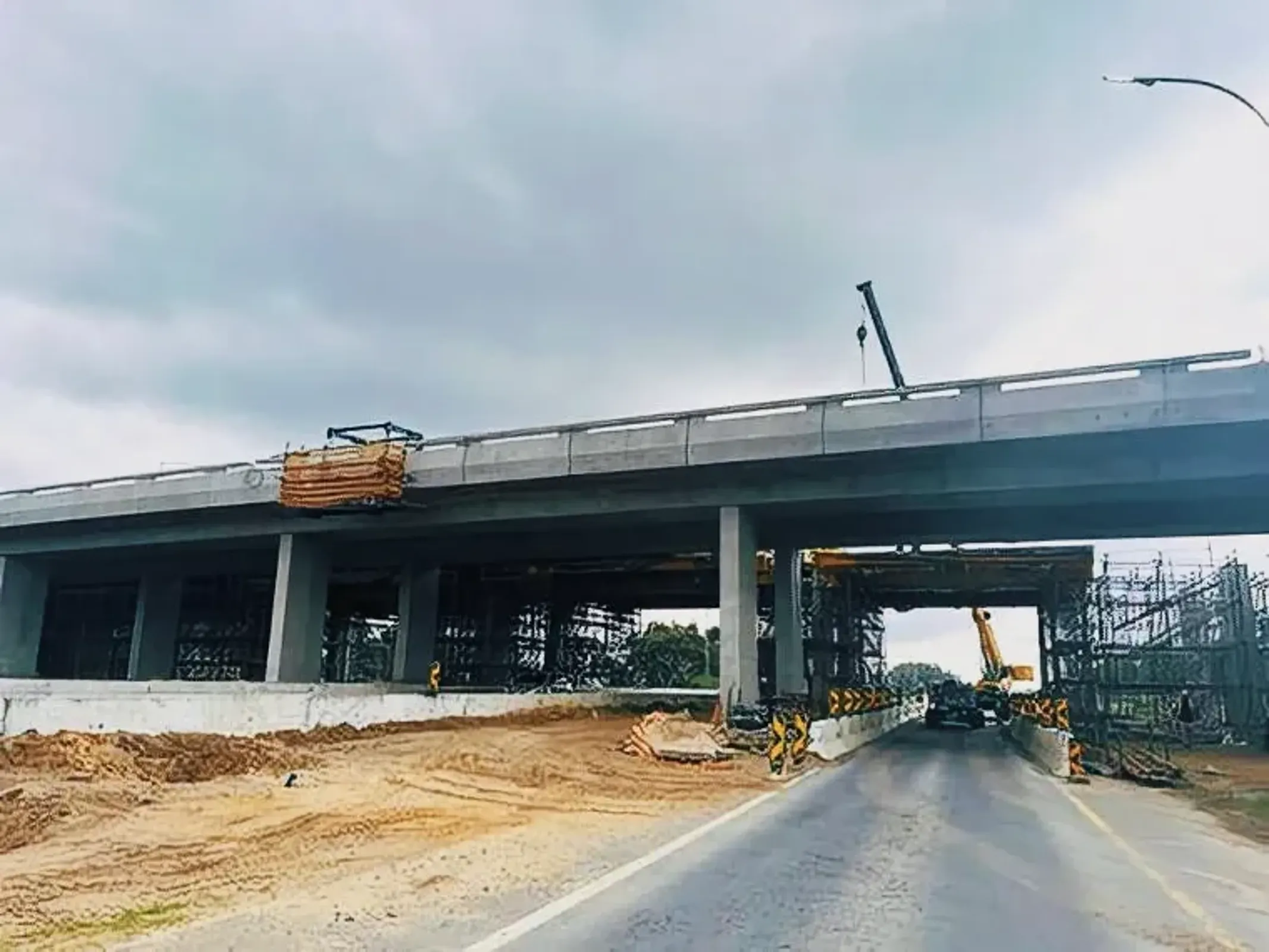 Photo: Western Cape Government
Photo: Western Cape Government Photo: Minister Tertuis Simmers (@minister_tertuissimmers)
Photo: Minister Tertuis Simmers (@minister_tertuissimmers)The project, officially known as Contract C1025.01, is a 30-month endeavor priced at R285-million. The purpose of this initiative is to strengthen and improve the safety of traffic operations at the Refinery interchange, a crossing located between Trunk Road 11 Section 1 (N7) and Plattekloof Road (M14).
Despite minor holdups due to weather events, the project is moving towards its projected completion date in the first quarter of 2024. The slight delays, which totaled to 28 days over the project’s lifespan, have not diminished the team’s commitment to meet their timeline.
Revitalizing Local Economy
The project extends beyond the scope of merely building roads and bridges. It serves as a catalyst for job creation, having already generated 478 work positions, surpassing the initial goal of 367 opportunities. Consequently, it has amplified the local economy and empowered the community. This is further underscored by the development of 17 emerging contractors, the support extended to 37 local enterprises, and a significant R42.5 million investment in targeted businesses.
The project’s main components include the construction of two new bridges over the N7, replacing the previous interchange bridge that had inadequate vertical clearance. These bridges, designated B6068 and B6089, are located on-site and south of the old bridge. They will form the westbound and eastbound carriageways accordingly. The project also plans to expand the existing Road-over-Rail Bridge and the four intersection ramps.
The project’s rigorous planning and execution have minimized traffic disruptions. Although vehicle movement may have slowed due to the lack of traffic signals, consistent traffic flow was achieved, averting the stop-and-go traffic typical with traffic signals.
Achievements and Future Plans
The project has successfully hit several significant milestones, with the west-bound bridge nearly complete and significant progress made on the east-bound bridge and the reconstruction of the eastbound carriageway of Plattekloof.
Tertuis Simmers, the provincial Minister of Infrastructure, voiced his satisfaction with the ongoing progress. He highlighted the project’s pivotal function as it is a crucial element of the broader development vision of the N7 corridor and the integrated transport plan for the Cape metropole. Minister Simmers also offered his thanks to the dedicated team and the patient road users for their ongoing support during the construction period.
Despite temporary inconveniences during construction, the project is expected to deliver long-standing benefits to the region. In addition to enhancing traffic operations, it serves as a driving force for job creation and support for small to medium enterprises (SMMEs).
As the project advances to Phase 5, motorists are reminded of the planned closure from 19:00 on 24 November 2023 to 05:00 on 27 November 2023. However, the N7 northbound off- and on-ramps, and the southbound off- and on-ramps at Refinery Interchange will remain open to traffic. Although it coincides with the Black Friday weekend, the project team regrets that rescheduling the closure is not possible.
Motorists can, however, be assured that all areas will remain accessible, and alternate routes are available for those traveling from different directions. The project team recommends that motorists plan their trips ahead of time and be mindful of the bridge closure on Plattekloof Road.
To conclude, the Refinery Interchange Project embodies strategic forethought, community engagement, and efficient implementation. Its success is a testament to the Western Cape’s dedication to infrastructure development, job creation, and regional growth.
1. What is the Refinery Exchange Initiative in Western Cape?
The Refinery Interchange Project is a 30-month infrastructure development project in the Western Cape of South Africa. It aims to improve the safety of traffic operations at the Refinery interchange and has already created jobs and supported local businesses. The project includes the construction of two new bridges, expansion of an existing bridge, and reconstruction of the carriageway. Despite minor delays due to weather events, the project is expected to be completed in the first quarter of 2024.
2. How has the Refinery Exchange Initiative impacted the local economy?
The project has created 478 work positions, surpassed the initial goal of 367 opportunities and supported 37 local businesses. It has also led to the development of 17 emerging contractors and a significant R42.5 million investment in targeted businesses. This has amplified the local economy and empowered the community.
3. What are the main components of the Refinery Exchange Initiative?
The main components include the construction of two new bridges over the N7, replacing the previous interchange bridge that had inadequate vertical clearance. These bridges, designated B6068 and B6089, are located on-site and south of the old bridge. They will form the westbound and eastbound carriageways accordingly. The project also plans to expand the existing Road-over-Rail Bridge and the four intersection ramps.
4. When is the Refinery Exchange Initiative expected to be completed?
Despite minor delays due to weather events, the project is expected to be completed in the first quarter of 2024.
5. How has the Refinery Exchange Initiative minimized traffic disruptions?
The project’s rigorous planning and execution have minimized traffic disruptions. Although vehicle movement may have slowed due to the lack of traffic signals, consistent traffic flow was achieved, averting the stop-and-go traffic typical with traffic signals.
6. What should motorists be aware of during the Refinery Exchange Initiative construction period?
As the project advances to Phase 5, motorists are reminded of the planned closure from 19:00 on 24 November 2023 to 05:00 on 27 November 2023. However, the N7 northbound off- and on-ramps, and the southbound off- and on-ramps at Refinery Interchange will remain open to traffic. Although it coincides with the Black Friday weekend, the project team regrets that rescheduling the closure is not possible. Motorists should plan their trips ahead of time and be mindful of the bridge closure on Plattekloof Road.

